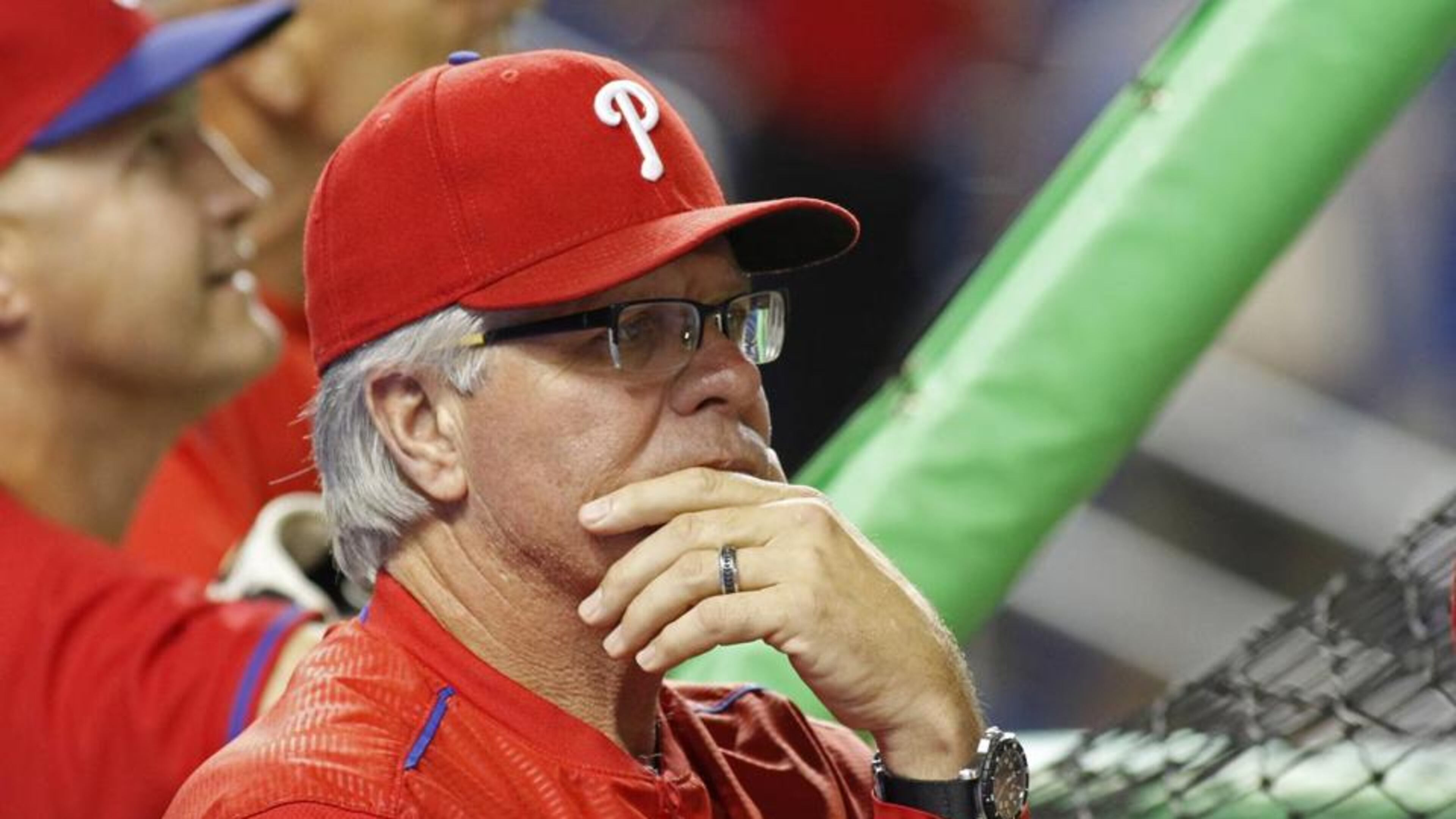These 2016 Phillies are better at the break than last year

The Phillies entered the All-Star break last year already dispirited and spent after a half-season of driving erratically toward the future with the tin cans of the past still tied to the rear bumper.
It wasn't just a team with a split personality but one that was literally split. The young in one camp, the veterans in another. Those with a future over here, those just killing time over there. Presiding over the mess was a camp counselor who proved so ill-suited for the task that he quit in late June after realizing he had neither the respect of the clubhouse nor the support of the organization.
The difference between the Phillies at the All-Star break in 2015 and at the current All-Star break is even bigger than the difference between the 29-62 record of a year ago and the 42-48 mark this time around. It is the difference between a team skidding into a corner and one that has successfully made the turn.
There is obviously plenty left to do _ the team will finish under .500 again this season _ but less than there was previously. Pete Mackanin and his coaching staff deserve a lot of credit for the on-field improvement. There simply aren't as many dead-headed plays in which fielders deliver the ball to the wrong base, or runners can't remember the outs, or pitchers substitute mere throwing for having a plan on the mound. Their heads are fully in the game, because the daily outing has become more of a chance than a chore, and they take advantage of it.
Doing the little things, staying plugged into the action, helps explain how a mediocre team can have a 20-9 record in one-run games and a 5-0 record in extra innings. When the Phillies are overmatched _ usually offensively _ it is obvious. They are 7-17 in games decided by five runs or more, but when they have a chance, it isn't illusory. Unlike a year ago, they really do have a chance.
The Phils are still missing two top-of-the-rotation pitchers and can't put together offensive innings because they have the lowest on-base percentage in the major leagues and the third-lowest slugging percentage. Those are not small gaps in their smile and will likely take several seasons to repair. The farm system is stocked with players who might contribute, but that is always a lottery.
Still, the bright spots are obvious, starting, at least this week, with center fielder Odubel Herrera, who represented the team at the All-Star Game in San Diego.
It's tempting to assume that Mackanin took the pressure off and just let the kid be himself, and that has been that. If you look more closely, however, Herrera had only nine walks in 80 games in the first half last season, then 19 walks in 67 games in the second half. This season, he has 44 walks in 89 games. The byproduct of being more selective is that Herrera combined the two halves to hit .307 in 155 games. Apparently, there's more to teaching discipline than making the guys wear sport coats on the plane.
There is reason to be optimistic about some others, too. Vince Velasquez, acquired in a multiplayer trade with Houston for Ken Giles, has been a revelation as a starter, and Peter Bourjos, a waiver claim from St. Louis, might just be a major-league outfielder. Jeanmar Gomez, signed as a free agent after Pittsburgh lost interest, has been a remarkably effective closer, but he could be moved at the trade deadline, as could veteran starter Jeremy Hellickson, who has been consistent and reliable in a season when there isn't a lot of that.
Most impressive this season for Mackanin has been his handling of legacy players Carlos Ruiz and Ryan Howard, both of whom are now backups. The manager treated the transitions with respect and deference but made the switches to Cameron Rupp and Tommy Joseph without looking back.
Of course, unlike his predecessor, Mackanin had a front office behind him, and one that wasn't connected to the glory days. If Pat Gillick and Ruben Amaro Jr. were sometimes pulling against Ryne Sandberg, there is no comparable tension among Andy MacPhail, Matt Klentak, and Mackanin. The current front office happily left the dirty work to the manager but didn't keep him from doing it, either.
Again, that's a very big change from a year ago. When, during one disastrous game in Baltimore, Chase Utley showed up Sandberg's decision to leave emergency pitcher Jeff Francouer on the mound in a blowout loss, and closer Jonathan Papelbon petulantly took the bullpen phone off the hook, the manager knew he was cooked. The situation was well beyond his limited skills to control it, and he quit eight days later.
Things are calmer now and far more professional. The clubhouse is animated, the mood is upbeat, and the tin cans of yesterday have all but stopped clanging against the pavement. The difference was made in only a year, and, sure, there are years left to go. But this is better, a lot better, and the standings are the least of it.
More Stories
The Latest

